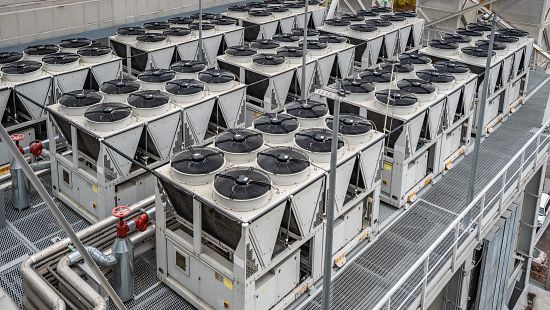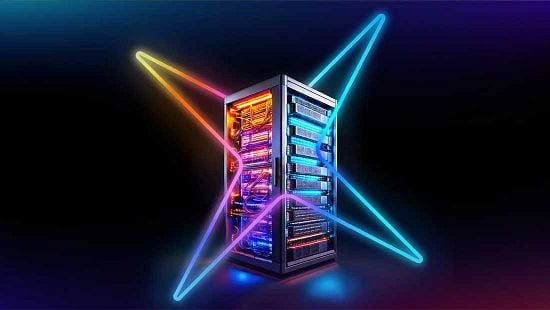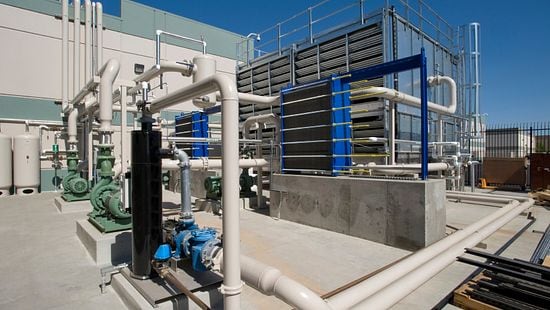
3D TRASAR™ Technology for Adiabatic Cooling
Powered by ECOLAB3D™
For 20+ years, 3D TRASAR has been the unparalleled leader in cooling water management technology. 3D TRASAR Technology for Adiabatic Cooling delivers reliable water quality insights to help data centers maximize cooling capacity, optimize water use and extend the lifespan of system assets.
What is Adiabatic Cooling?
What is Adiabatic Cooling?
Adiabatic cooling is a direct evaporative cooling process that leverages natural phenomena to provide cooling and humidity control. It works by pulling outside air into the system and through a piece of dampened media. As the air flows through the media, the water evaporates into the air, cooling and humidifying it.
Advanced Automation for Adiabatic Cooling Systems
Manage your adiabatic cooling system confidently with 3D TRASAR for Adiabatic Cooling.
This program delivers reliable water quality insights to optimize system performance through a combination of smart equipment, real-time insights, proprietary chemistry and expert support.

Smart Equipment
The program includes 3D TRASAR™ controllers, flow meters and a maintenance-free conductivity probe.

Real-Time Insights
Reliable data enables timely and impactful water management decisions across your data center ecosystem.

Proprietary Chemistry
Dual-action program helps protect adiabatic cooling assets from deposits to optimize cooling efficiency while using less water.

Extended Support
24/7/365 alarm management and response from the Ecolab Global Intelligence Center with optional access to our Remote Intelligence hypercare service.
Advantages and Challenges of Adiabatic Cooling Systems
Adiabatic cooling systems provide effective evaporative cooling for data centers, but they also present unique challenges
Advantages of Adiabatic Cooling Systems
- Requires less water and energy than other cooling methods, such as evaporative cooling towers
- Leverages the natural environment (the air outside) to generate cooling
- Operates effectively in warm, dry and water-stressed climates
- Functions optimally in facilities that require high volumes of water, such as data centers
Challenges of Adiabatic Cooling Systems
- Lower water quality more quickly degrades the system media
- Media degradation leads to inefficient operation and increased water and energy use
- Rapid media degradation necessitates more frequent replacements, increasing costs

Research-Driven Water Management
3D TRASAR for Adiabatic Cooling supports smooth, efficient operational performance for your data center cooling systems:
- Measuring where it matters through individual monitoring of each adiabatic unit
- Consistent water quality through centralized chemical dosing across multiple units
- Early detection and response to out-of-spec conditions enabled by enhanced reporting
- Accountability and results supported by a digital action log
- Optimized water and chemistry use driven by improved blowdown control
- Cooling capacity is optimized when media and assets are performing at their best
Related Data Center Cooling and Water Management Programs and Solutions

3D TRASAR™ Technology for Direct-To-Chip Liquid Cooling
Protect high-value, high-performance computing (HPC) servers and cooling systems while optimizing their operational efficiency

Water Quality IQ™
Enable visibility across multiple sites and systems, quantify the savings of water-reduction projects and more

Ecolab Global Intelligence Center
Continuous system monitoring and personalized service on a worldwide scale with multi-lingual support

3D TRASAR™ Cooling Water Technology
Water treatment and management programs for cooling towers, chillers and more


